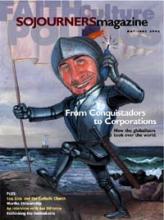When I heard about the death of country singer Waylon Jennings in February, my mind flashed back to the day I first bought one of his records. I was 19, and I literally shed my own blood to buy that album.
The year was 1973a time of terrible disappointment for us rock-and-roll disciples. The music that had promised so much just a few years before had all but given up the ghost. Then one day I read in Rolling Stone magazine that Waylon Jennings had recorded a bare-bones, hard-core country album that also managed to capture rock's old rebel spirit.
Without having heard a note, I knew I had to have it. But I was a foolish and profligate youth, and I had no money, not even the $5 you needed in those days for a 12-inch slab of vinyl. Then some even more foolish and profligate friends of mine showed up with a plan. They'd found a place downtown that paid cash for blood plasma. They took a pint of your blood and ran it through a centrifuge. Then they kept the clear liquid, pumped the red stuff back into your arm and sent you out the door with a $5 bill. My friends were going, and I, to my eternal shame, went with them. The plasma bank was horrible, and I never went back, but I never completely repented of that one trip, either, because I took my fresh new $5 bill and immediately traded it for Honky Tonk Heroes by Waylon Jennings and The Waylors.
I took the album home and looked at the cover. On the front was a sepia-toned photo of Jennings, his band, and a battered posse of cronies gathered around a bar. The picture was a little scary. These weren't kids. They were grown men, mostly in their 30s and 40s (Jennings was 35); it looked like a shot from the ultra-violent western of the day, The Wild Bunch.
Read the Full Article
